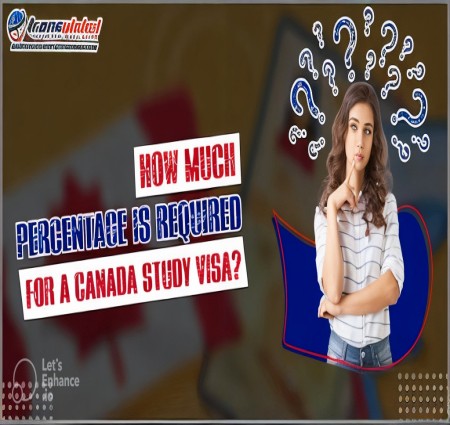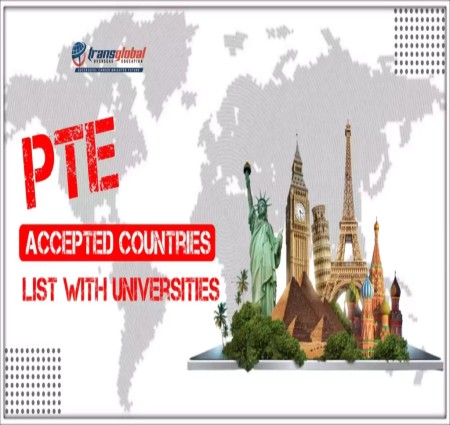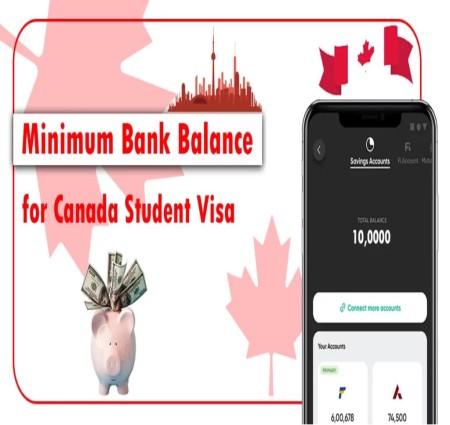Blog by transglobaloverseas | Digital Diary
" To Present local Business identity in front of global market"
" To Present local Business identity in front of global market"
 Digital Diary Submit Post
Digital Diary Submit Post
Applying for an MBA in Finance in Canada involves several key steps, including researching programs, preparing application materials, and meeting admission requirements. This guide will walk you through the process, from choosing the right university to completing your application successfully.
Before applying, research various programs to find the best fit for your career goals. Top universities in Canada offer strong MBA in Finance programs with diverse specializations and benefits. Consider the following factors:
University Reputation: Look at rankings and reviews.
Program Specializations: Choose a program aligned with your career interests.
Location: Consider the city and its business environment.
To apply for an MBA in Finance in Canada, prepare the following:
1. Academic Records
Ensure your undergraduate degree and transcripts are ready. Most programs require a recognized bachelor's degree.
2. GMAT/GRE Scores
Many top MBA programs require GMAT or GRE scores. Aim for competitive scores to strengthen your application. Learn more about GMAT requirements here.
3. Work Experience
Most programs prefer candidates with 2-5 years of relevant work experience. Highlight your achievements and leadership roles.
4. Personal Statement
Write a compelling personal statement. Explain why you want to pursue an MBA in Finance in Canada and how it aligns with your career goals.
5. Letters of Recommendation
Obtain strong letters of recommendation from professionals who can attest to your qualifications and potential.
Each university has specific admission criteria, but generally, you will need:
Bachelor's Degree: An accredited undergraduate degree.
GMAT/GRE Scores: Competitive scores as per the program's requirement.
Work Experience: Typically 2-5 years.
English Proficiency: If applicable, provide IELTS or TOEFL scores.
Be aware of application deadlines for each university. Prepare your materials ahead of time to ensure you meet all deadlines. Check each university's website for specific dates.
Consider scholarships, financial aid, and student loans. Many universities offer financial support for international students. Explore options and apply early. For more information on scholarships, visit Scholarships for Canada.
Applying for an MBA in Finance in Canada involves careful planning and preparation. By researching programs, preparing your application materials, and meeting admission requirements, you can enhance your chances of success. Focus on top institutions and align your application with your career goals to make the most of this opportunity.
Read Full Blog...
 Indian students seeking scholarships in the UK can access various opportunities with clear eligibility criteria. Scholarships like the Chevening and Commonwealth offer full funding. Application success depends on academic excellence and early planning. This guide covers the application process, eligibility, and tips to enhance your chances of securing a scholarship. Understanding UK Scholarship fo...
Read More
Indian students seeking scholarships in the UK can access various opportunities with clear eligibility criteria. Scholarships like the Chevening and Commonwealth offer full funding. Application success depends on academic excellence and early planning. This guide covers the application process, eligibility, and tips to enhance your chances of securing a scholarship. Understanding UK Scholarship fo...
Read More
Indian students seeking scholarships in the UK can access various opportunities with clear eligibility criteria. Scholarships like the Chevening and Commonwealth offer full funding. Application success depends on academic excellence and early planning. This guide covers the application process, eligibility, and tips to enhance your chances of securing a scholarship.
UK scholarships for Indian students are available across various universities and institutions. These scholarships help in reducing the financial burden and encourage talented students to pursue their academic goals in the UK.
Academic Excellence: Most scholarships require a strong academic record.
English Proficiency: IELTS or TOEFL scores are often necessary.
Specific Requirements: Some scholarships have specific criteria, like courses or universities.
| Scholarship | Eligibility Criteria | Funding Amount |
| Chevening Scholarship | Bachelor's degree, work experience | Full tuition, living expenses |
| Commonwealth Scholarship | Master's/PhD programs, financial need | Full tuition, airfare |
| GREAT Scholarships | Undergraduate or postgraduate, academic merit | Full tuition, airfare |
Academic Transcripts: Certified copies of your previous education.
Proof of Identity: Passport or national ID.
English Test Scores: IELTS/TOEFL results.
Letters of Recommendation: From academic or professional references.
Personal Statement: Explaining your academic goals and reasons for applying.
Research Scholarships: Identify suitable scholarships on university websites and scholarship databases.
Prepare Your Application: Gather all necessary documents and ensure they are up-to-date.
Submit Your Application: Follow the specific application procedures for each scholarship.
Attend Interviews: Some scholarships may require an interview process.
For more detailed information, read this article: UK Scholarships for Indian Students
Chevening Scholarships: Prestigious awards for postgraduate studies, funded by the UK government.
Commonwealth Scholarships: Scholarships and fellowships for postgraduate study and professional development.
Many UK universities offer scholarships specifically for Indian students. Research individual university websites for details.
Explore India-specific scholarships and subject-specific awards aligned with your field of study.
Apply Early: Start your application process well in advance.
Tailor Your Application: Customize your personal statement and documents to fit the scholarship requirements.
Seek Guidance: Consult with your school's academic advisor or study in Uk Consultants.
Incomplete Applications: Ensure all documents are submitted.
Missing Deadlines: Be aware of application deadlines and submit early.
Generic Statements: Personalize your application to reflect your unique qualifications and aspirations.
Applying for UK scholarships can be a rigorous process, but with careful preparation and a strong application, Indian students can successfully secure funding for their studies. Start early, stay organized, and use available resources to maximize your chances.
Read Full Blog... Canada is a top destination for international students, thanks to its high-quality education system, welcoming culture, and beautiful landscapes. One of the most common questions aspiring students have is: "What percentage do you need for a Canada study visa?" This article aims to answer this question clearly and straightforwardly. Understanding the Academic Requirements Academic perform...
Read More
Canada is a top destination for international students, thanks to its high-quality education system, welcoming culture, and beautiful landscapes. One of the most common questions aspiring students have is: "What percentage do you need for a Canada study visa?" This article aims to answer this question clearly and straightforwardly. Understanding the Academic Requirements Academic perform...
Read More
Canada is a top destination for international students, thanks to its high-quality education system, welcoming culture, and beautiful landscapes. One of the most common questions aspiring students have is: "What percentage do you need for a Canada study visa?" This article aims to answer this question clearly and straightforwardly.
Academic performance is a crucial factor when applying for a Canada study visa. While there is no one-size-fits-all answer, as requirements can vary between institutions and programs, most Canadian colleges and universities look for a minimum percentage of your previous academic qualifications.
For undergraduate programs, a minimum of 65% in your high school (12th grade) is usually required. However, some competitive programs may require higher percentages. For postgraduate programs, a minimum of 70% of your undergraduate degree is typically needed. These are general benchmarks, and it's always best to check specific requirements for your chosen institution.
According to a study by the Canadian Bureau for International Education (CBIE), in 2020, over 75% of international students in Canada were enrolled in programs that required high academic standards, reflecting the importance of good grades in the admission process.
Some institutions might accept lower percentages if you have other strengths, such as strong extracurricular activities, relevant work experience, or excellent letters of recommendation. For example, community colleges might have more flexible requirements compared to top-tier universities.
Different universities have varying standards. For instance:
University of Toronto: Generally requires an average of 85% for competitive programs.
University of British Columbia: Looks for at least 80% for most undergraduate programs.
Humber College: Might accept students with 65% in relevant high school courses.
For detailed information, you can refer to the University Study website, which provides comprehensive insights into specific university requirements.
Apart from academic percentages, you need to demonstrate proficiency in English or French. Tests like IELTS, TOEFL, or TEF are commonly required. Most institutions look for an IELTS score of 6.5 or higher, with no band less than 6.0.
You must show proof of sufficient funds to cover tuition fees, living expenses, and return transportation. According to Immigration, Refugees and Citizenship Canada (IRCC), students should have at least CAD 10,000 per year, excluding tuition.
A well-crafted SOP can make a significant difference. Explain why you chose Canada, what your selected program is, and how it aligns with your career goals. This document provides context to your academic records and helps admissions officers understand your motivation and potential.
In summary, while the minimum percentage required for a Canada study visa varies depending on the institution and program, aiming for a minimum of 65-70% is a good start. Always check the specific requirements of the universities you are applying to, and ensure you meet language proficiency and financial criteria. By preparing thoroughly, you can enhance your chances of studying in one of the world's most desirable education destinations.
Read Full Blog... Studying for an MBA is a significant step towards advancing your career, and Canada is a popular destination for many aspiring business leaders. The good news is that some of the top business schools in Canada offer MBA programs without requiring GMAT scores. In this article, we'll explore how you can pursue an MBA in Canada without GMAT scores, backed by statistics and useful resources. The A...
Read More
Studying for an MBA is a significant step towards advancing your career, and Canada is a popular destination for many aspiring business leaders. The good news is that some of the top business schools in Canada offer MBA programs without requiring GMAT scores. In this article, we'll explore how you can pursue an MBA in Canada without GMAT scores, backed by statistics and useful resources. The A...
Read More
Studying for an MBA is a significant step towards advancing your career, and Canada is a popular destination for many aspiring business leaders. The good news is that some of the top business schools in Canada offer MBA programs without requiring GMAT scores. In this article, we'll explore how you can pursue an MBA in Canada without GMAT scores, backed by statistics and useful resources.
Canada is known for its high-quality education system and diverse, inclusive environment. According to the Canadian Bureau for International Education (CBIE), there were over 642,000 international students in Canada in 2020, a testament to its global appeal. Additionally, Canada's business schools are recognized for their strong industry connections and practical approach to learning.
While the GMAT has long been a standard for MBA admissions, many institutions recognize that it is not the only indicator of a candidate's potential. Schools understand that professional experience, academic achievements, and leadership skills are equally important. As a result, several Canadian universities now offer GMAT-free MBA programs.
Start by identifying Canadian universities that offer GMAT-free MBA programs. Schools like the Schulich School of Business at York University, the DeGroote School of Business at McMaster University, and the Thompson Rivers University offer such options. Each school has its own criteria, so it's important to check their specific requirements.
Since the GMAT is not a requirement, schools will look closely at your professional background. Emphasize your work experience, leadership roles, and achievements in your application. Demonstrating significant career progression can be a strong advantage.
Your undergraduate degree and any additional academic qualifications play a crucial role. Ensure your transcripts and any relevant certifications are well-presented. Schools often look for a strong academic record as a substitute for GMAT scores.
Letters of recommendation from employers or professional mentors can significantly strengthen your application. These letters should highlight your skills, work ethic, and potential for success in an MBA program.
Your personal statement or statement of purpose is your chance to tell your story. Explain why you want to pursue an MBA, why you chose Canada, and how the program aligns with your career goals. Be honest and passionate in your writing.
For more detailed information on GMAT-free MBA programs in Canada, you can refer to resources like the Canadian Universities website which provides a comprehensive overview of MBA options and admissions criteria.
Pursuing an MBA without the GMAT can save you time and stress associated with preparing for and taking the exam. It also allows you to focus more on other critical aspects of your application, such as your professional achievements and career aspirations.
An MBA in Canada without GRE/GMAT scores is a viable and attractive option for many prospective students. By carefully researching programs, emphasizing your professional and academic strengths, and utilizing available resources, you can successfully navigate the admissions process. Canada's business schools offer a welcoming environment and a high-quality education that can propel your career to new heights
Read Full Blog... Transglobal Overseas, a leading education consultant in Delhi, is known for its expertise in helping students achieve their study abroad dreams. But did you know they also offer top-notch PTE coaching classes? The Pearson Test of English (PTE) is a crucial step for many students aiming to study in English-speaking countries like the UK, Australia, or New Zealand. Navigating the PTE format and gett...
Read More
Transglobal Overseas, a leading education consultant in Delhi, is known for its expertise in helping students achieve their study abroad dreams. But did you know they also offer top-notch PTE coaching classes? The Pearson Test of English (PTE) is a crucial step for many students aiming to study in English-speaking countries like the UK, Australia, or New Zealand. Navigating the PTE format and gett...
Read More
Transglobal Overseas, a leading education consultant in Delhi, is known for its expertise in helping students achieve their study abroad dreams. But did you know they also offer top-notch PTE coaching classes?
The Pearson Test of English (PTE) is a crucial step for many students aiming to study in English-speaking countries like the UK, Australia, or New Zealand. Navigating the PTE format and getting a high score can be tough, but Transglobal Overseas is here to make it easier.
Here's why Transglobal Overseas is a great choice for your PTE coaching in Delhi:
You'll be guided by seasoned professionals who understand the PTE inside-out. They'll break down the test format, explain scoring criteria, and share effective strategies for each section.
Forget a one-size-fits-all approach. Trainers assess your individual strengths and weaknesses, tailoring teaching methods to address your specific needs. This personalized focus ensures you get the exact support you need to improve.
To accommodate different needs, Transglobal Overseas offers flexible class schedules, including weekend and evening batches.
Regular mock tests and simulated exams are a cornerstone of Transglobal Overseas' PTE coaching. These tests replicate the real PTE environment, allowing you to identify areas for improvement, build confidence, and refine your time management skills. After each test, you'll receive valuable feedback from trainers to help you develop strategies for overcoming your challenges.
Many Transglobal Overseas students have achieved their desired PTE scores and are now thriving at universities abroad. Their success is a testament to the effectiveness of the coaching programs. In fact, with their proven track record, a significant number of students have secured impressive scores!
Choosing Transglobal Overseas for PTE coaching is an investment in your future. With their expert guidance, personalized support, and comprehensive resources, you'll be well-equipped to conquer the PTE and open doors to exciting international education opportunities.
So, if you're serious about studying abroad and need to ace the PTE, Transglobal Overseas is the perfect partner for your success journey. Visit their website transglobaloverseas.com today and take the first step towards achieving your academic dreams!
Read Full Blog...
 Studying in the UK is a dream for many international students but English language test can feel like a daunting hurdle. But fear not, aspiring scholars! Did you know that in 2023, a whopping 21% of UK universities accepted applicants without an IELTS score? That's right, there are alternative pathways to proving your English language proficiency and securing your spot at a prestigious UK univ...
Read More
Studying in the UK is a dream for many international students but English language test can feel like a daunting hurdle. But fear not, aspiring scholars! Did you know that in 2023, a whopping 21% of UK universities accepted applicants without an IELTS score? That's right, there are alternative pathways to proving your English language proficiency and securing your spot at a prestigious UK univ...
Read More
Studying in the UK is a dream for many international students but English language test can feel like a daunting hurdle. But fear not, aspiring scholars! Did you know that in 2023, a whopping 21% of UK universities accepted applicants without an IELTS score? That's right, there are alternative pathways to proving your English language proficiency and securing your spot at a prestigious UK university without IELTS for Indian Students.
Standardized Tests: Explore alternatives like Duolingo English Test, Pearson Test of English (PTE), or TOEFL iBT. These tests are often shorter and more flexible than the IELTS.
High School English Grades: If you excelled in English classes throughout high school, your transcript can serve as proof of proficiency. Universities typically set specific grade requirements, so check their websites for details.
Pre-sessional English Courses: Many universities offer pre-sessional English courses designed to bridge the gap and prepare you for academic coursework. Successfully completing such a course can demonstrate your English language skills.
Medium of Instruction: Was your previous education conducted entirely in English? Many universities consider this a strong indicator of your English proficiency.
Start by researching which UK universities accept alternatives to the IELTS. Each university has its own set of requirements, so it's essential to gather accurate information. Universities like the University of Portsmouth and the University of Bolton are known for accepting students without an IELTS score, provided they meet other English proficiency criteria.
Once you've identified the universities, prepare the necessary documents:
Academic Transcripts: Ensure all your academic records are up to date and certified.
English Proficiency Proof: Submit the accepted alternative English test scores or MOI certificate.
Personal Statement: Write a compelling personal statement that highlights your academic journey, achievements, and future goals.
Letters of Recommendation: Secure recommendation letters from your previous teachers or employers.
Apply directly through the university's website or use platforms like UCAS (Universities and Colleges Admissions Service) for undergraduate programs. Follow the specific guidelines for each university regarding the submission of documents and application fees.
Some universities may require an interview as part of the application process. This is an opportunity to showcase your communication skills and reinforce your proficiency in English.
After receiving an offer letter from the university, apply for a UK student visa. You'll need to provide evidence of your acceptance, financial stability, and English proficiency. Visit the official UK government website for detailed information on the student visa application process.
Applying to UK universities without an IELTS score is entirely possible with the right approach. By understanding the alternative options and following a systematic application process, you can achieve your dream of studying in the UK without IELTS. Remember to research thoroughly, prepare diligently, and seek guidance when needed. Good luck with your application!
Absolutely! A surprising 21% of UK universities actually accept applicants without an IELTS score. This guide explores alternative ways to demonstrate your English language proficiency.
Several options exist! Explore standardized tests like Duolingo English Test, Pearson Test of English (PTE), or TOEFL iBT. These can be shorter and more flexible than the IELTS.
Yes! Strong grades can be used as proof of English proficiency for many universities. Each university sets specific grade requirements, so check their admissions pages for details.
Many universities offer pre-sessional English courses designed to bridge the gap between your current level and academic coursework. Successfully completing one demonstrates your English proficiency.
Start by researching UK universities without IELTS with programs that align with your interests. Look for those that explicitly mention alternative English language requirements on their admissions pages. Contact the university directly to confirm details and gather required documents – transcripts, test scores (if applicable), and recommendation letters. Remember, application deadlines are crucial, so submit everything well in advance!
Read Full Blog... Choosing the right university for studying abroad is a significant decision that requires careful consideration. Your choice will impact not only your academic experience but also your personal growth and future career opportunities. Here's a comprehensive guide to help you make an informed decision. Identify Your Academic and Career Goals Before you start researching universities, it's es...
Read More
Choosing the right university for studying abroad is a significant decision that requires careful consideration. Your choice will impact not only your academic experience but also your personal growth and future career opportunities. Here's a comprehensive guide to help you make an informed decision. Identify Your Academic and Career Goals Before you start researching universities, it's es...
Read More
Choosing the right university for studying abroad is a significant decision that requires careful consideration. Your choice will impact not only your academic experience but also your personal growth and future career opportunities. Here's a comprehensive guide to help you make an informed decision.
Before you start researching universities, it's essential to have a clear understanding of your academic interests and career aspirations. Ask yourself:
What are my academic strengths and weaknesses?
Which subjects or fields am I passionate about?
What are my long-term career goals?
Having a clear vision of what you want to achieve will help you narrow down your options and find a university for studying abroad that aligns with your goals. According to a 2021 report by QS World University Rankings, 70% of students choose their study destination based on the quality of education and career prospects.
University rankings can provide valuable insights into the quality of education and research opportunities. Reputable ranking organizations like Times Higher Education, QS World University Rankings, and U.S. News & World Report evaluate universities based on various criteria, including academic reputation, faculty quality, and student satisfaction.
While rankings shouldn't be the sole factor in your decision, they can give you a general idea of a university's strengths and weaknesses. For instance, if you are interested in engineering, look for universities that are highly ranked in that specific field.
Check the QS World University Rankings for 2024 to get a detailed list of top universities globally.
Read More: Choosing a right study destination
The location of the university can significantly impact your overall experience. Consider factors such as:
Climate: Do you prefer a warm, sunny climate or a cooler, more temperate one?
Culture: Are you interested in immersing yourself in a specific culture or language?
Cost of Living: Some cities are more affordable than others. Make sure to factor in accommodation, food, transportation, and other living expenses.
Statistics show that 65% of international students consider the lifestyle and cultural experiences available in the study destination as critical factors in their decision-making process.
Look for universities that offer strong academic support and state-of-the-art facilities. This includes libraries, laboratories, research centers, and extracurricular activities. Universities with robust support systems, such as tutoring, counseling, and career services, can enhance your academic experience and help you succeed.
Studying abroad can be expensive, so it's crucial to consider your budget. Research tuition fees, scholarship opportunities, and other financial aid options. According to UNESCO, nearly 8% of all international students receive some form of financial aid. Explore scholarships offered by universities, governments, and private organizations.
One of the best ways to gauge a university's suitability is by talking to current and former students. Join online forums, social media groups, or university alumni networks to get honest feedback about their experiences. Websites like The Student Room or Reddit can also provide valuable insights.
University fairs and open days offer a unique opportunity to interact with representatives, faculty, and current students. These events can help you understand the campus environment and ask specific questions about the programs and facilities.
Choosing the right university for studying abroad involves a combination of personal preferences, academic goals, and practical considerations. By thoroughly researching your options and seeking feedback from various sources, you can make an informed decision that will set the foundation for a successful academic and professional future.
Remember, the right university is one that not only meets your academic needs but also supports your personal and career growth. Take your time, do your research, and choose wisely. For more tips and detailed guidance, you can consult with study abroad consultants in Delhi, who will help you choose the best university for your needs and goals.
Not quite! While rankings offer a starting point, most students (78%, according to a recent study) prioritize finding a university that fits them. Consider things like program focus, campus life, and location alongside rankings.
Focus on the programs offered and how they align with your interests. Research the faculty, curriculum, and research opportunities. Don't forget to consider the location, culture, and campus environment – will you feel comfortable and happy living there?
There are ways! Explore scholarships offered by universities, governments, and organizations. Some universities offer work-study programs to help you earn some income while studying. Research the cost of living in your chosen location to plan your budget and find scholarships that provide enough support.
Many resources are available online! Check out free scholarship search tools like Scholarships.com. You can check this article on scholarships for study abroad .
This depends on your chosen country and visa type. Some countries offer student visas that allow part-time work opportunities. Explore the university website or contact them directly for specific details about work options for international students.
Read Full Blog... In today's globalized world, many countries accept PTE Academic scores for international students seeking to study abroad. PTE Academic, a computer-based English language test, is recognized by numerous universities and colleges worldwide. Here are some key destinations where you can use your PTE Academic scores to pursue higher education: Why Choose PTE Academics? Many students find PTE Acade...
Read More
In today's globalized world, many countries accept PTE Academic scores for international students seeking to study abroad. PTE Academic, a computer-based English language test, is recognized by numerous universities and colleges worldwide. Here are some key destinations where you can use your PTE Academic scores to pursue higher education: Why Choose PTE Academics? Many students find PTE Acade...
Read More
In today's globalized world, many countries accept PTE Academic scores for international students seeking to study abroad. PTE Academic, a computer-based English language test, is recognized by numerous universities and colleges worldwide. Here are some key destinations where you can use your PTE Academic scores to pursue higher education:
Many students find PTE Academic's computer-based format more user-friendly. It tests all of the essential language skills – listening, speaking, reading, and writing – through a user-friendly platform. This efficient system ensures a standardized and reliable assessment of your English abilities for academic settings.
The good news is, the list of countries accepting PTE Academic scores is growing all the time! Here are some PTE Academic Accepting Countries where PTE Academic is increasingly recognized:
Australia: Australia is a leader in PTE acceptance. Universities and immigration authorities widely recognize PTE scores for student visas and program admissions. Check out the official PTE website for more details on visas.
United Kingdom: The UK is becoming increasingly PTE-friendly. More and more universities are now accepting PTE scores for students applying to their programs. You can find a list of PTE-accepting universities in the UK on this website.
United States: While not yet universally accepted, a growing number of US universities are now considering PTE scores for international student applications. To see if your dream university accepts PTE, check their website directly.
Canada: Canada is showing a positive trend towards accepting PTE scores for student visa applications. Keep an eye out for updates!
Germany: Many German universities now recognize PTE Academic as a valid proof of English proficiency for admission purposes.
For the most current information and specific requirements for each country and institution, it's advisable to check directly with the universities' admissions offices or consult official immigration websites. Stay informed and plan your study abroad journey effectively with PTE Academics.
With over 3,300 institutions worldwide now recognizing PTE scores, the test offers international students greater flexibility and opens doors to a wider range of study abroad opportunities. This increasing acceptance reflects the PTE's efficient, standardized format and its proven ability to accurately assess English language skills for academic success.
Don't forget some important details before you jet off on your amazing study abroad adventure! Make sure to check the specific requirements of your dream university and the country you've chosen. They might have their own preferences for English language tests. Also, register for the PTE Academic well ahead of any application deadlines. This will give you plenty of time and avoid any last-minute scrambles! That way, your application process will be smooth sailing and stress-free. Remember to verify PTE accepted countries to ensure your chosen destination recognizes the test for admissions and visa purposes.
Most universities for international students require proof of English proficiency. This ensures you can succeed in academic settings.
Nope! PTE Academic is a great alternative to the more traditional IELTS exam. Both tests assess your English skills for academic purposes.
Head to your chosen university's website! They'll have a dedicated section outlining admission requirements, including English language proficiency tests they accept.
Absolutely! Register for the test well before application deadlines. This gives you ample time to prepare and avoids last-minute stress.
Don't worry! Many resources are available online and through educational advisors. They can help you choose the right test and guide you through the preparation process.
Read Full Blog... Dreaming of studying in Canada? One of the crucial aspects of your student visa application is proving that you have enough funds to support yourself during your stay. This article will guide you through the financial requirements for a Canada student visa, ensuring you are well-prepared for a smooth application process. Why Proof of Funds is Important The Canadian government requires proof of fun...
Read More
Dreaming of studying in Canada? One of the crucial aspects of your student visa application is proving that you have enough funds to support yourself during your stay. This article will guide you through the financial requirements for a Canada student visa, ensuring you are well-prepared for a smooth application process. Why Proof of Funds is Important The Canadian government requires proof of fun...
Read More
Dreaming of studying in Canada? One of the crucial aspects of your student visa application is proving that you have enough funds to support yourself during your stay. This article will guide you through the financial requirements for a Canada student visa, ensuring you are well-prepared for a smooth application process.
The Canadian government requires proof of funds to ensure that international students can cover their tuition fees, living expenses, and return transportation. This measure guarantees that students will not face financial difficulties while studying and living in Canada.
The amount of money you need to show as proof of funds varies depending on your location and study program. As of 2023, here are the general guidelines:
Tuition Fees: This depends on the institution and the program. On average, undergraduate tuition fees range from CAD 13,000 to CAD 20,000 per year. Postgraduate programs can cost between CAD 17,000 and CAD 25,000 per year.
Living Expenses: The Canadian government sets a minimum amount for living expenses, which varies by province. The general requirement is CAD 10,000 per year for a student. If you are studying in Quebec, the required amount is CAD 11,000 per year.
Additional Funds: If you have dependents, you need to show additional funds. For one dependent, the amount is CAD 4,000 per year, and for each additional dependent, it's CAD 3,000 per year.
The Canadian immigration authorities accept various forms of proof of funds for study in canada. These include:
Bank statements for the past four months
Guaranteed Investment Certificate (GIC) from a participating Canadian financial institution
Proof of a student loan from a bank
Bank draft in convertible currency
Proof of payment of tuition and accommodation fees
A letter from a person or institution providing you with money
Proof of funding paid from within Canada if you have a scholarship or are in a Canadian-funded educational program
Financial Statements: Bank statements for the past 6 months demonstrating sufficient funds are typically required.
Guaranteed Investment Certificate (GIC): A Canadian GIC is a reliable option. You deposit a specific amount of money into a Canadian bank for a fixed term, and the funds are released upon fulfilling visa requirements.
Financial Support Letter: If someone is financially supporting your studies, a notarized letter from them along with proof of their income can be submitted.
Maintain Sufficient Balance: Ensure your bank account consistently shows the required balance for at least four months before your application.
Clear Documentation: Provide clear, official bank statements and documents. Avoid large, unexplained deposits close to your application date, as they can raise questions.
Securing a student visa for Canada requires careful financial planning. By understanding the minimum bank balance for Canada Student visa and preparing your documentation accordingly, you can confidently navigate the application process. Remember, demonstrating your financial stability not only helps in securing your visa but also ensures a comfortable and stress-free study experience in Canada.
As of October 2023, you'll need to demonstrate access to at least CAD $20,635 per year, excluding the first year's tuition. However, this is a minimum, so factor in additional living expenses.
You'll need additional proof of funds to cover their expenses. Check the official Canadian government website for specific details.
Bank statements for the past 6 months are typically required. You can also use a Guaranteed Investment Certificate (GIC) or a notarized financial support letter from someone sponsoring your studies.
Always refer to the official Canadian government website for the most up-to-date information. Requirements can change, so stay informed!
Don't hesitate to seek guidance! Consider consulting a visa consultant or education advisor specializing in Canadian study permits. They can answer your questions and offer valuable support.
Read Full Blog... Navigating the student visa interview process can be daunting, but with the right preparation, you can significantly increase your chances of success. In this detailed guide, we'll share valuable tips and address common questions you might encounter during your student visa interview. According to a recent study, 85% of student visa applications are approved when applicants demonstrate clear inten...
Read More
Navigating the student visa interview process can be daunting, but with the right preparation, you can significantly increase your chances of success. In this detailed guide, we'll share valuable tips and address common questions you might encounter during your student visa interview. According to a recent study, 85% of student visa applications are approved when applicants demonstrate clear inten...
Read More
Navigating the student visa interview process can be daunting, but with the right preparation, you can significantly increase your chances of success. In this detailed guide, we'll share valuable tips and address common questions you might encounter during your student visa interview. According to a recent study, 85% of student visa applications are approved when applicants demonstrate clear intentions and preparedness during their interviews.
Understand the Purpose of the Interview: The main goal of the visa interview is to assess your genuine intent to study abroad, your ability to financially support yourself, and your plans post-graduation. Be honest and clear in your responses.
Gather Essential Documents: Ensure you have all required documents ready, such as your passport, visa application form, acceptance letter from your university, financial statements, and academic transcripts. Organized documentation can make a positive impression on the interviewer.
Know Your Study Program and University: Be prepared to discuss why you chose your specific program and university. Highlight unique aspects of the program and how it aligns with your career goals. For example, you could mention specific courses, faculty members, or research opportunities that attracted you.
Practice Common Questions: Familiarize yourself with common interview questions and practice your answers. This will help you feel more confident and articulate during the actual interview.
Demonstrate Financial Stability: Be ready to explain how you plan to finance your education and living expenses. Have your financial documents organized and accessible.
Why did you choose this university and program?
Tip: Be specific. Mention particular aspects of the university or program that align with your academic and career aspirations.
How do you plan to finance your education and living expenses?
Tip: Provide a detailed explanation of your funding sources, such as personal savings, family support, scholarships, or educational loans. Show that you have enough funds to cover tuition and living costs.
What are your plans after graduation?
Tip: Indicate your intention to return to your home country after completing your studies. Discuss how you plan to apply your education and skills in your home country.
Can you explain any gaps in your education or work history?
Tip: Be honest and straightforward. Explain any gaps in a positive light, focusing on how you've used that time productively.
Here are top 10 Student Visa Interview tips to ensure a smooth application and ace your interview.
Research Visa Requirements: Understand the specific requirements for the student visa of the country you're applying to. Each country may have different criteria and documentation needed.
Prepare Your Documents: Organize all required documents neatly in a folder. This typically includes your passport, letter of acceptance from the institution, financial documents, and proof of accommodation.
Know Your Course and Institution: Be well-informed about the course you've applied for and the institution where you'll be studying. Familiarize yourself with their reputation, facilities, and campus culture.
Practice Interview Questions: Practice common interview questions with friends, family, or a study abroad consultant. This helps you articulate your answers clearly and confidently during the actual interview.
Be Punctual: Arrive early for your interview. Being punctual demonstrates your seriousness and respect for the process.
Dress Appropriately: Dress neatly and professionally. Your attire should be suitable for a formal interview setting.
Communicate Clearly: Speak clearly and confidently during the interview. Maintain eye contact with the interviewer and avoid mumbling or speaking too fast.
Stay Calm and Composed: Remain calm throughout the interview. If you don't understand a question, politely ask for clarification instead of guessing.
Show Genuine Intentions: Express genuine intentions to study and return to your home country after completing your studies. Immigration officers look for sincerity in your purpose.
Seek Professional Help: If needed, consult with study abroad consultants who can guide you through the application and interview process.
For more detailed guidelines and tips, consider exploring resources provided by your chosen university or educational consultants. These organizations often offer mock interviews and personalized advice. For additional information on preparing for your student visa interview, visit the U.S. Department of State's official website.
Acing your student visa interview is crucial for achieving your dream of studying abroad. By thoroughly preparing, practicing common questions, and maintaining a professional and positive attitude, you can navigate the interview process with confidence. Remember, the key is to clearly demonstrate your genuine intent to study and your ability to support yourself financially. Good luck on your journey to studying abroad!
Excellent question! Visa requirements can vary depending on your destination country. Here are a couple of resources to get you started:
U.S. Department of State: This website offers comprehensive information on U.S. student visas, including application procedures and requirements
Embassy or Consulate Website: Every country has an embassy or consulate in most major countries. Visit the website of the embassy or consulate representing your chosen study destination for specific student visa requirements.
Documents typically required for a student visa interview can vary, but some common ones include:
Valid Passport: Ensure your passport is valid for the duration of your intended stay, with additional blank pages for visa stamps.
Acceptance Letter: An official letter from the university confirming your enrollment in the chosen program.
Proof of Financial Support: This demonstrates your ability to cover tuition fees and living expenses. Bank statements, scholarship letters, or financial aid documentation can be used.
Academic Transcripts: Official transcripts from your previous education institutions.
Be confident and professional: Project a positive and mature demeanor during the interview.
Speak clearly and concisely: Avoid rambling and focus on addressing the question directly.
Be prepared to discuss your study plans: Articulate your academic goals and how they align with the program and your future career aspirations.
Show genuine interest: Ask thoughtful questions about the program, university, or student life in the host country.
Don't panic! Politely ask the interviewer for clarification if something is unclear. Restate the question in your own words to ensure you understand before providing a response.
Read Full Blog...
I want to Hire a Professional..